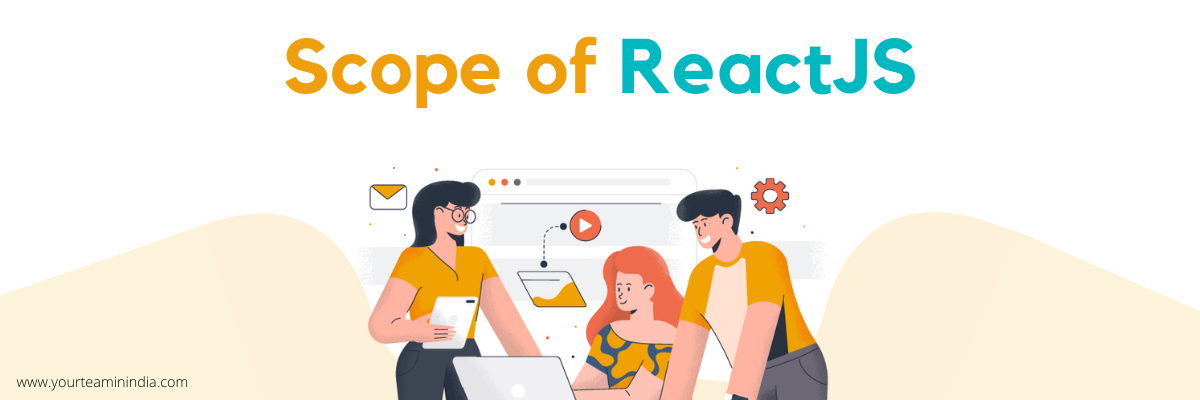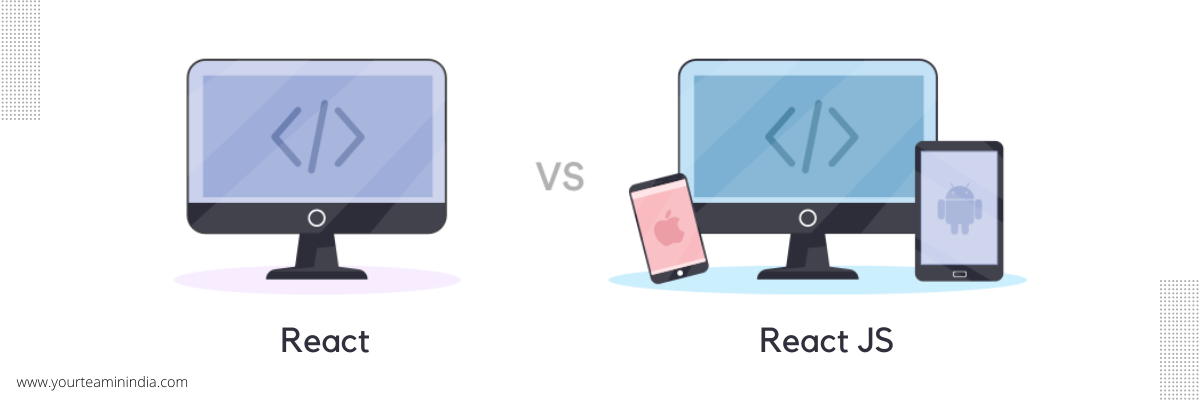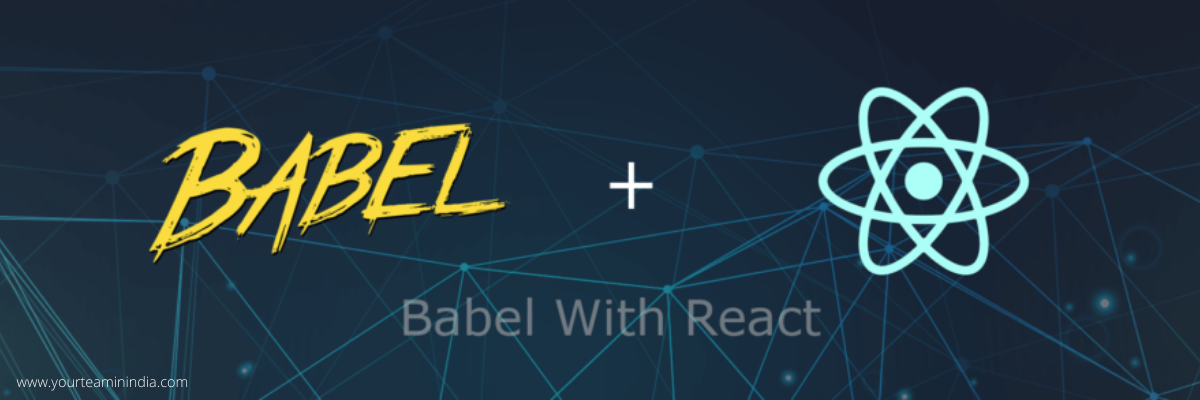
Without a doubt, ReactJS is one of the most famous libraries among front-end developers. Its popularity is growing by the day. The website built with ReactJS looks excellent, and most newcomers to development are drawn to it (created by Facebook). However, many newcomers and experienced developers make the error of leaping right into ReactJS (or another library and framework) without first learning the prerequisites.
We'll go over some basics and fundamental principles that you should be familiar with before diving into React. These fundamental notions will also aid you in learning other javascript frameworks and libraries in the future.
What is ReactJS?
React is a JavaScript toolkit for creating fast and interactive user interfaces for mobile and web apps. It's an open-source front-end library that is component-based, accountable for the view layer of the applications. The view layer manages how the program looks and feels in the Model View Controller (MVC) architecture. Jordan Walke, a Facebook software engineer, designed React.
React encourages you to improve your skill-set if you've never produced a single-page application previously. React has a lot to offer as a library: you may create reusable components with a consistent data flow (which makes debugging much easier). In addition, react frequently allows you to complete tasks by writing JavaScript.
Scope of ReactJS:

With its increased adaptability and ease of use, React development has emerged as the future of web development.
ReactJS is projected to be used on over 94000 pages, with over 1300 developers actively developing.
The most well-known applications using ReactJS include Facebook, PayPal, Instagram, Uber, and Airbnb.
New frameworks are being developed in web development to address the constraints of previous libraries or frameworks. Many of the flaws in previous versions, such as AngularJS, have been addressed in ReactJS. ReactJS is used to create quick and scalable web apps, and new plugins are designed for it as the need for more functionality grows.
Recommended Read: 15 Advantages of ReactJS for Application Development
Is ReactJS Easy?
The truth is that there is no one-size-fits-all answer to the question of how tough React.js is to learn. Instead, there are numerous elements involved, and each person develops new skills at their speed.
It's essential to remember, though, that you'll need a few additional coding abilities before you can get into learning how to use React.js in your projects.
React can assist you in becoming a successful programmer. One benefit of learning React.js for a programmer is that it teaches you how to navigate the framework and new patterns of thought that might help you in other areas of programming.
React vs. ReactJS

React is a basic library that requires you to make all of your own decisions. It focuses on assisting you in the creation of user interfaces using elements. It's important to remember that React is compact, making it simple to combine with other technologies.
ReactJS is a JavaScript programming language library. The principal feature of this framework is that it can be used to create web apps with high-intensity user communication.
To recap, React is a fantastic architecture that allows web developers to create flawless mobile apps utilizing their JavaScript skills.
Prerequisites of ReactJS:
ReactJS is a declarative, dynamic JavaScript framework for creating user interfaces (UI) that are more configurable and usable. An application for different states has several advantages in producing basic views and making it easier to alter and present associated components as data changes. The following are the prerequisites of ReactJS and what are things one needs to know to start learning ReactJS.
1. Improve Your JavaScript Skills
JavaScript is the first thing you should master before diving into React. The beauty of React is that it is essentially a JavaScript library. As a result, the more JavaScript you know, the better you'll be at building React applications.

You must grasp JavaScript fundamentals and become comfortable with them. Then, with React, you'll be considerably more productive. Unfortunately, many people mistake studying React before they have a basic understanding of JavaScript development. So please don't make the same mistake.
First and foremost, master JavaScript. Otherwise, you'll soon become swamped with all you'll have to learn in addition to React, and you'll likely give up before you discover how great it is to work with React.
So, if you want to focus on getting the most out of React, start with that strong foundation.
2. Command over CSS and HTML
CSS and HTML are the foundations for all front-end developers. So, before you start learning React, make sure you know how to write CSS and HTML. You must be able to write semantic HTML tags, use classes, CSS selectors, implement a CSS reset, reset to border-box, box model, flexbox, create responsive web apps with media queries, and design a front-end application with the use of CSS and HTML.
3. Babel & JSX (Javascript XML)

You'll deal with JSX in React, which looks like HTML and may be thought of as HTML-flavored JavaScript. It's the simplest approach to include HTML code in javascript, or you might call it a Javascript syntactic extension. However, before you begin learning React, you should have a thorough understanding of what JSX is. To understand, take a look at the code below:
const h1 = <h1>Hello Programmers</h1>
The above code may be unclear to you when you first look at it. Is it likely that it's Javascript? Or is it HTML? Perhaps something else entirely. The above code will not run in an HTML file, although it does contain the HTML element <h1>Hello world/<h1>.
Babel is another vital concept to understand. Babel is a JavaScript compiler that converts HTML-like text into regular JavaScript objects. It downgrades functionality from the most recent javascript or ECMAScript 2015+ (ES6+) to ES5 and normal javascript. If you're going to use React, make sure your concept is clear about JSX and Babel.
Conclusion
Making beautiful, responsive, and quick web applications require a lot of effort. Therefore, it may seem daunting to learn the command line, npm, CSS, and vanilla JavaScript — but bear in mind that knowing these things will help you learn React and help you become a more robust developer.
You'll be able to wake up and run faster if you can read the example code and test code instead of just following the given documentation. Also, importing other people's code will be easier if you have a good mental representation of modern JavaScript module systems (ES6, CommonJS).
Need help setting up a dedicated team of Reactjs developers in India? At Your Team In India, we have a pool of certified Reactjs engineers. Connect with us our business head now and get a free consultation.







